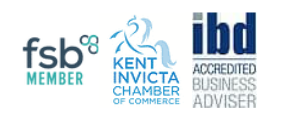Preparing our business for sale is usually straightforward, but in order to maximise its’ value you need to take several steps, including:
- Start preparing your business to be able to operate without you, completely. In particular this includes delegating increasing amounts of responsibility/authority to your various staff, which means that they may require additional training/mentoring/recruitment, which can be sought professionally or delivered by the owner, or most likely a mixture of the two. This could, in practice, take 6-12-18 months, ideally, but reducing this time may lead to an overall devaluation of the business, or new owners may even require the current managers, or key members of staff not to retire and continue working in the business for an extra period of time, which is not exactly what most owners want, they usually want a clean break from the business.
- Start writing up Job Descriptions and personnel records for each member of your staff including what qualifications they hold, or relevant / professional training they have had and professional licences etc. they may hold to do their work. Your staff turnover is often indicative of the stability of the business and is often used an indication of the calibre of the management and harmony of the business. Longevity of staff members may also raise employment liabilities and/or pension rights which all need to be recorded and declared.
- Ensure that you have a CRM system, or similar, for each of your customer, even ones you no longer have, which describes each customers’ order history, invoice payment record and details of why and how they order your services or goods.
- An asset register also need to include all the IT, IT systems, peripherals like printers and scanners and even IT upgrades in the business, including relevant staff training and back up systems / facilities / records / repairs. Data Policies, Procedures and Manuals also need to be provided as well or records and examples as to how the IT systems have performed. All leases, property titles and rights of access need to be claried / classified.
- Verify all your assets, legal title, maintenance records, repairs, valuations etc.. This should include an asset register and any insurance assessments or asset reinstatements and how and why these may have changed over the years.
- Ask your Accountants what they think both you and they need to provide / declare to potential bidders prior to and during the “Due Diligence” process / period. This should include the previous years audited accounts and accounting policies, valuations of all the assets (tangible & intangible) and a register of all the company’s liabilities, debts and material risks (insured & uninsured).
- Ask your Accountants what they think both you and they ned to provide to potential bidders prior to and during the “Due Diligence”. This should include the previous years audited accounts and accounting policies, valuations of all the assets (tangible & intangible) and a register of all the company’s liabilities, debts and material risks (insured & uninsured).
- Your banking history / records / finances will also be an essential element of your presentation of the business to potential bidders. Other records that will be required will include your insurance record and records of any claims and circumstances of claims.
- Ask you Solicitor what they think both you and they need to provide / disclose to potential bidders prior to and during the “Due Diligence”. Your Solicitor needs to validate if there is any liabiloty or potential liability / claim over any of your assets. Your Solicitor also needs to advise you on how you ensure confidentiality of your data and financial etc. records whilst being transparent and truthful in all our declarations to potential bidders (which may include competitors, neighbours, suppliers or customers).
- An overall sales plan needs to be created, including when and how you inform your staff, customers and suppliers of the sale and progress of the sale. In my experience it is best to be transparent as possible, where practical
- Many more to come.

